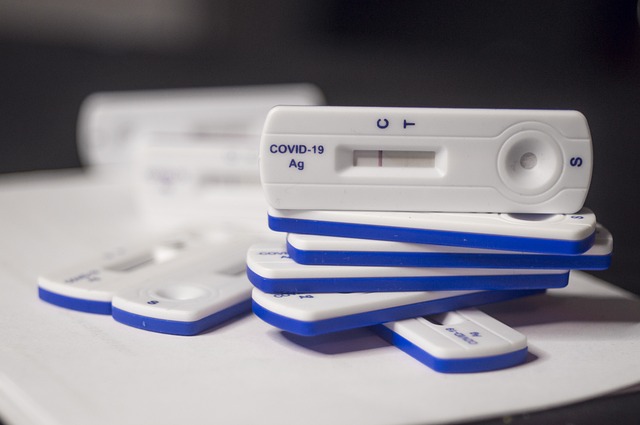Liver Function Tests (LFTs) are essential blood assessments for liver health, monitoring key enzymes, bilirubin, and bile production. Digital advancements have improved LFT reliability and accessibility through secure online services, automated analyzers, and efficient testing methods. Individuals can conveniently schedule confidential tests at home, ensuring prompt results and proactive liver care management with professional guidance.
“Discover the significance of confidential liver function tests, offering swift and accurate results in today’s healthcare landscape. This comprehensive guide explores why these tests are vital for monitoring liver health, highlighting the critical role they play in early detection of potential issues.
We’ll delve into the importance of patient confidentiality in medical services and how modern testing technologies ensure fast, reliable results. Additionally, we provide a step-by-step guide to accessing secure liver function test services, empowering you to take charge of your liver health.”
- Understanding Liver Function Tests: Why and What They Measure
- The Importance of Confidentiality in Medical Services
- Fast and Accurate Results: Modern Testing Technologies
- Accessing Secure Liver Function Test Services: A Step-by-Step Guide
Understanding Liver Function Tests: Why and What They Measure
Liver function tests (LFTs) are a series of blood tests that help evaluate how well your liver is working. These tests measure various enzymes, proteins, and other substances produced or processed by the liver, providing crucial insights into its overall health and functioning. By understanding what these tests assess, individuals can better appreciate their significance in maintaining liver wellness.
LFTs primarily check for abnormalities in liver enzymes, such as alanine aminotransferase (ALT) and aspartate aminotransferase (AST), which are often elevated when there is liver damage or inflammation. They also monitor bilirubin levels, a pigment produced from the breakdown of red blood cells, indicating potential issues with liver processing. Additionally, these tests can reveal problems with bile production and flow, which is essential for digestion and toxin elimination. Regular LFTs are valuable for detecting early signs of liver diseases, including hepatitis, cirrhosis, or other conditions, allowing prompt intervention and management.
The Importance of Confidentiality in Medical Services
In today’s digital age, where privacy is a paramount concern, maintaining confidentiality in medical services has become even more critical. When it comes to sensitive health matters like liver function tests, patients must feel secure that their personal information remains protected. Confidentiality builds trust between patients and healthcare providers, encouraging individuals to seek necessary testing without hesitation. This is especially true for those dealing with potential liver-related issues, where early detection through accurate tests can significantly impact treatment outcomes.
Confidential liver function test services offer a safe and private environment, ensuring results are shared only with authorized individuals or the patient themselves. Fast results are an added benefit, allowing patients to take charge of their health by promptly accessing information that can guide important decisions regarding their well-being. This dual focus on privacy and efficiency is a game-changer in healthcare, fostering a more open dialogue between patients and medical professionals.
Fast and Accurate Results: Modern Testing Technologies
In today’s digital era, modern technologies have revolutionized liver function testing, enabling faster and more accurate results than ever before. Advanced diagnostic tools, such as automated analyzers and innovative assay methods, play a pivotal role in this transformation. These cutting-edge devices can process samples swiftly, delivering precise interpretations of liver enzyme levels and other key markers.
The integration of these technologies has significantly enhanced the reliability and efficiency of liver function tests (LFTs). From point-of-care testing to centralized lab settings, healthcare professionals now have access to real-time data, leading to improved patient management and timely interventions. This advancement in LFT capabilities ensures that individuals can receive prompt feedback on their liver health, fostering proactive care and better outcomes.
Accessing Secure Liver Function Test Services: A Step-by-Step Guide
Accessing secure liver function test services is a straightforward process designed with your privacy and convenience in mind. Start by researching reputable healthcare providers or clinical laboratories that offer confidential testing packages, ensuring they comply with relevant data protection regulations. Many professional services provide easy-to-follow online portals where you can schedule tests, receive instructions, and even submit results securely.
Once you’ve selected a service, follow these steps: register for an account, complete the necessary patient information, choose your test options, and make a payment (if required). Next, you’ll receive a kit in the mail, which may include collection containers, detailed instructions, and a return shipping label. After conducting the test at home, following the provided guidelines, and packaging your samples securely, send them back for processing. Results are typically available within a few days to a week, depending on the service provider’s turnaround time.
Liver function tests are essential tools for maintaining overall health, offering insights into liver health and functionality. With modern technologies providing fast and accurate results, accessing confidential services has become more convenient than ever. By following a simple step-by-step guide, individuals can navigate these services securely, ensuring privacy while receiving critical information about their liver’s condition. This access to knowledge empowers folks to make informed decisions regarding their health.
